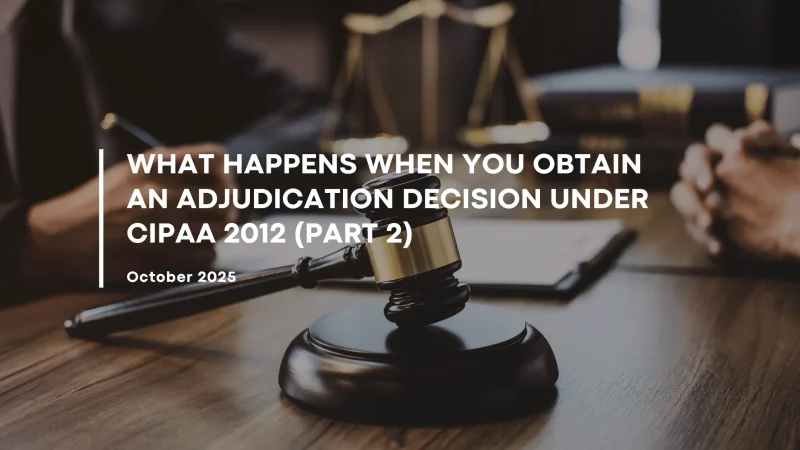Frustrated with a dispute with shareholders and unsure of what to do next? Are shareholder arguments beginning to risk your business? At PDLegal, we understand how stressful and complex these conflicts can be, particularly when they concern partners or key individuals you’ve worked closely with. That is why we vow to give you sound Disputes & Advisory solutions that safeguard your interests and ensure your business is secure for the future.
What Are Shareholder Disputes?
Shareholder disputes arise when disagreements occur between shareholders regarding matters such as company management, financial decisions, or the exercise of shareholder rights. These disputes can affect both the internal operations of a company and its reputation. Common causes of shareholder disputes include governance issues, differences in business strategy, and conflicting expectations among shareholders.
Common Reasons for Shareholder Disputes
Disputes between shareholders can stem from many causes. Some of the more frequent triggers include:
- Differences in long-term business strategy
- Concerns about minority shareholder oppression
- Alleged breaches of shareholders’ agreements
- Disputes over dividend policies and profit distribution
- Issues regarding transparency and access to company information
Understanding the cause is the first step towards applying the right Disputes & Advisory strategies.
Early Steps in Managing Disputes
Addressing disputes early can reduce the risk of escalation. Early legal assessment helps:
- Clarify the rights and responsibilities of each shareholder
- Identify potential breaches of agreements or company law
- Explore resolution methods before resorting to litigation
Proactive Disputes & Advisory measures are essential in preserving business continuity.
Legal Strategies for Resolving Shareholder Disputes
There are various legal options available to address shareholder disputes, depending on the situation. Common strategies include:
- Negotiation and mediation: Encouraging direct dialogue between parties to reach a mutual agreement
- Litigation: Seeking court intervention in cases where amicable resolution is not possible
- Enforcing shareholders’ agreements: Upholding or challenging terms that govern shareholder relationships
- Buy-outs or restructuring: Considering changes to shareholding structures as part of a settlement
Each dispute requires a careful assessment to determine the most suitable approach under Disputes & Advisory frameworks.
Importance of Shareholders’ Agreements
A comprehensive shareholders’ agreement can reduce the likelihood of disputes. These agreements typically:
- Define shareholders’ rights and duties clearly
- Outline procedures for resolving disagreements
- Provide exit strategies for shareholders wishing to leave the business
Having a clear agreement helps prevent misunderstandings that could otherwise lead to disputes.
How Disputes Impact Businesses
Shareholder disputes can have far-reaching consequences. These may include:
- Disruption to management and daily operations
- Negative impact on staff morale
- Damage to the company’s reputation in the market
- Financial strain due to prolonged legal proceedings
Timely and strategic Disputes & Advisory guidance is essential to limit these risks.
Alternative Dispute Resolution in Shareholder Matters
In many cases, shareholder disputes can be resolved without going to court. Alternative dispute resolution methods, such as mediation and arbitration, offer advantages:
- Confidentiality of proceedings
- More flexible, tailored solutions
- Reduced time and costs compared to litigation
These methods form an important part of effective Disputes & Advisory practices.
Our Legal Strategies for Resolving Disputes
When you come to PDLegal for support, we don’t believe in a one-size-fits-all solution. Instead, we customize our Disputes & Advisory strategies to suit your situation. Some of the legal solutions we offer include:
- Negotiation and mediation to achieve amicable settlements
- Applications for court intervention where necessary
- Enforcing or defending shareholder rights through litigation
- Advising on buy-out options or restructuring of shareholding
Our goal is to protect your interests while preserving business value wherever possible.
Conclusion
Clear legal strategies are essential when dealing with shareholder disputes. Approaches such as early negotiation, careful review of shareholders’ agreements, and alternative dispute resolution can help protect interests and minimize business disruption. The right strategies not only address the immediate conflict but also support the long-term stability of the company.
At PDLegal, we provide practical guidance grounded in experience handling shareholder disputes in Singapore. Our team is ready to assist with tailored solutions that safeguard your position. Contact us today to make your next step a confident one!
FAQs
What are shareholder disputes?
How do you resolve shareholder disputes?
Resolving a shareholder dispute often involves legal strategies such as negotiation, mediation, or litigation. A solid Disputes & Advisory approach helps identify solutions that protect shareholder interests while minimizing business disruption. Early legal guidance is key to finding a practical resolution.
What is an example of shareholder abuse?
Shareholder abuse may occur when majority shareholders take actions that unfairly harm minority shareholders, such as withholding dividends or blocking access to company information. These situations often require Disputes & Advisory support to enforce rights and ensure fair treatment. Legal strategies help address such imbalances effectively.
What are the major causes of disputes?
The major causes of shareholder disputes include disagreements over company management, breach of shareholders’ agreements, profit distribution issues, and lack of transparency. These disputes can escalate without proper Disputes & Advisory intervention. Early legal strategies are essential to prevent long-term damage.
Can shareholders bring action against directors?
Yes, shareholders can bring legal action against directors for breaches of duty, mismanagement, or conduct that harms the company. In such cases, Disputes & Advisory strategies help shareholders navigate legal processes and protect their interests. These actions aim to ensure accountability within the company.
What are the legal rights of shareholders?
Legal rights of shareholders typically include voting on key decisions, receiving dividends, and accessing company information. When these rights are challenged, Disputes & Advisory guidance helps shareholders assert and protect them. Understanding these rights is crucial in avoiding or addressing disputes.
What happens if shareholders disagree?
When shareholders disagree, it can affect decision-making and business operations. A strong Disputes & Advisory strategy focuses on resolving disagreements through negotiation, mediation, or legal action if necessary. Clear agreements and early intervention help prevent escalation.
How do you formally resolve a dispute?
A shareholder dispute can be formally resolved through mediation, arbitration, or litigation, depending on the situation. Effective Disputes & Advisory strategies ensure the chosen method aligns with the company’s and shareholders’ best interests. The goal is to reach a fair and enforceable outcome.
Can shareholders remove a CEO?
Shareholders may remove a CEO if allowed under the company’s constitution or shareholders’ agreement. Such actions often involve complex Disputes & Advisory considerations to ensure legal compliance and minimize business disruption. The process typically requires a formal vote or resolution.
What is a rights issue for shareholders?
A rights issue offers existing shareholders the opportunity to buy additional shares, usually at a discount, before shares are offered to others. Disputes & Advisory guidance is important if shareholders have concerns about how a rights issue affects ownership or control. Legal advice helps ensure the process is fair and transparent.
What are the risks of being a shareholder?
Risks of being a shareholder include financial loss, reduced influence in company decisions, and potential involvement in shareholder disputes. Disputes & Advisory strategies help shareholders address these risks, especially when conflicts arise. Legal support can protect shareholder value and rights.
What do you say when filing a dispute?
When filing a shareholder dispute, it is important to clearly state the facts, the legal grounds for the dispute, and the relief or outcome sought. A well-prepared statement, supported by Disputes & Advisory advice, ensures the claim is focused and legally sound. Precision at this stage strengthens the case for resolution.
Disclaimer: This article is intended to provide general information only and does not constitute legal advice. It should not be used as a substitute for professional legal consultation. We recommend seeking legal advice before making any decisions based on the information in this article. PDLegal fully disclaims any responsibility for any loss or damage that may result from reliance on this article.


